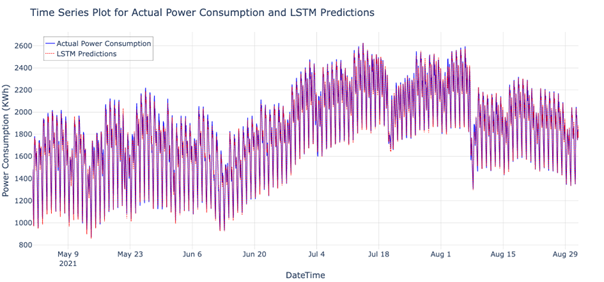M.S. Candidate: Mutakabbir Ahmed Tayib
Program: Information Systems
Date: 13.08.2023 / 13:15
Place: A-212
Abstract: This thesis provides a guideline for approaching energy consumption predictions using deep learning techniques. This study explores how comparable the time series model performances are for univariate vs. multivariate energy consumption forecasts, what data preprocessing techniques, features, and variables impact the performances, and how the level of model complexity impacts the performances for both univariate and multivariate models. Deep learning techniques require extensive training time to produce adequate model performances, subject to change between different model architectures and hardware used, begging the question of the environmental impact of the extensive training. Three different data sets were employed using Long Short Term Memory (LSTM), Convolutional Neural Network (CNN), Transformer, SARIMA \& Temporal Fusion Transformer (TFT) Models. Experiments are conducted systematically over 1528 experiment runs, and the methodologies used in this study to answer the research questions are provided in full transparency, offering a clear insight into resource usage aspects, including the computation time on the employed hardware while attaining the targeted model performance. The results show that the univariate model outperforms the multivariate models for two of the three data sets tested. Among all the model architectures, LSTM outperforms all the univariate experiments, while TFT performs best among the multivariate experiments. In the data set where the TFT multivariate model performance has the upper hand, the marginal increase in forecast Mean Absolute Percentage Error (MAPE) is only 5.17\%, which does not validate the experimentation's extensive training and resource cost. Consequently, it can be concluded that univariate models are superior in forecasting energy consumption despite being less complex and requiring significantly less training time, cost, and resources.
